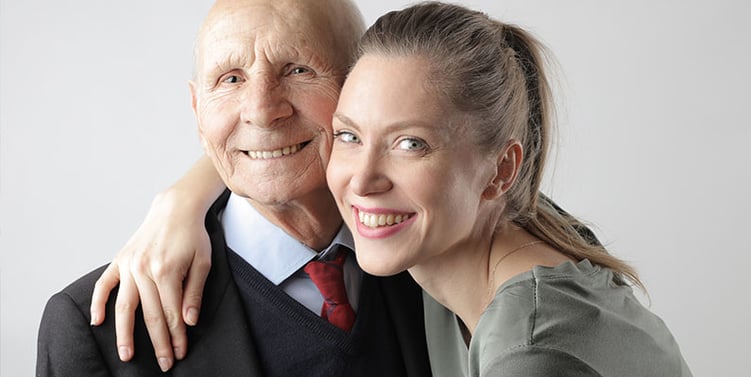Supporting Seniors During the Pandemic
During the coronavirus pandemic, senior citizens are self-isolating to protect themselves from the virus, but isolation creates its own set of problems.
More than half of the seniors in the U.S. qualify as low-income, and many rely on part-time jobs to make financial ends meet. When businesses shut down, many seniors lost their jobs or left jobs because of fear of contracting the virus. This has meant many seniors cannot buy the food they need or pay their rent or utilities.
Many senior citizens also live alone and have lost the socialization they had at church, in volunteer activities, and by visiting with friends and family. When senior centers closed, many seniors lost access to both a daily meal and a source of social contact. Levels of depression and anxiety grew from both isolation and the fear of contracting the virus.
As the Delta Dental Foundation (DDF) looked at developing our COVID-19 Emergency Relief Fund, we intentionally sought to fund organizations that assist seniors. Many that serve seniors, like food pantries, also rely on seniors as volunteer staff. The self-isolation recommendations have meant that not only has the demand for services increased for these agencies, volunteer labor has decreased. This means more staff hours are needed, putting an additional strain on the budgets of these organizations.
Across Michigan, Ohio and Indiana, the DDF used our $600,000 COVID-19 Emergency Relief Fund to provide financial assistance to dozens of organizations that provide food assistance or other services to seniors. Funding went to groups such as Meals on Wheels, which delivers nutritious meals to homebound seniors, the Community Transportation Network in Fort Wayne, which provides rides to seniors, and the Tri-County Office on Aging in Lansing, where DDF funding provided toothbrushes, toothpaste and toilet paper to home-bound seniors.
Not only does financial assistance help, but Delta Dental employees also have volunteered their time.
Rick Lantz, vice president of government relations, volunteered with the Tri-County Office on Aging (TCOA) conducting check-in calls.
“I have a list of 13 seniors I have been calling weekly since the end of March,” Lantz says. “As you can imagine, even in normal conditions, seniors can feel lonely and isolated. That is amplified significantly during the COVID-19 pandemic.
“I reach out to them each week to see if they have the essentials, like enough food and their prescriptions. If they voice a need that TCOA can help with, I report that back to TCOA. I also just provide a listening ear and make sure they know they are not alone. I’ve come to appreciate how difficult is to be stuck at home for lengthy periods of time. I hope my calls provide a bit of comfort to these seniors.”

